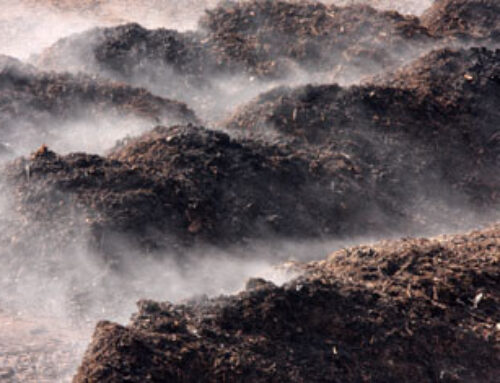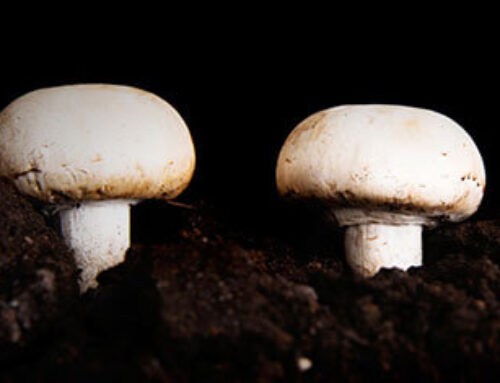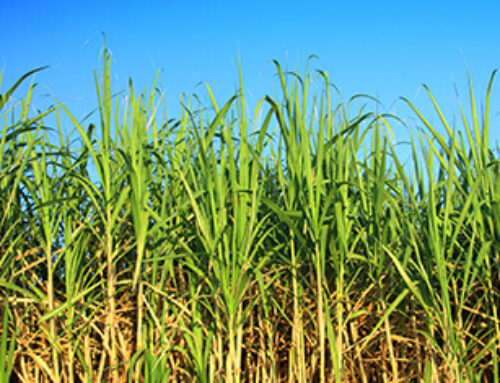
Municipal Refuse Compost Plays a Part in Soil Improvement Effect
Urban waste compost improves the physical & chemical properties of soil
MSW compost not only has richer organic material, constant nutrient elements (nitrogen, phosphorus, calcium) needed by plants and necessary micro-elements (copper, zinc, iron, manganese), and also has a certain amount of coarse residue. Composting increases soil organic matter, provides the material base for the formation of granules with good water stability, and a few coarse residues can correspondingly change the feature of heavy clay soil. If applied properly, Municipal Solid Waste compost can dramatically improve soil physical properties, mainly showing in the enlargement of non-capillary porosity, the increase of water stability macro aggregate and decrease of fine soil, the raising of soil saturated conductivity, the enhancement of soil ventilation property, and the improvement of soil farming performance, all of which forming good growing conditions. After researching the effect on soil properties of applying sludge and waste compost into cropland, measuring soil physical properties(including soil bulk density, granular structure, porosity, three-phase ratio and so on) via different treatments, experts say soil bulk density decreases with the increasing of compost dosage, total granular structure and water stability granular structure tends to increase, and meanwhile, the volume of soil solid phase gradually reduces but liquid and gas phase volume rises little by little, promoting soil porosity and capillary porosity, thus raising soil permeability and field moisture capacity, which obviously improves soil physical property.
Besides, waste compost can promote the cation exchange capacity of the soil, improve the buffer ability of soil on acid-base, and provide nutrient exchange and absorbent active site, thereby promoting fertilizer retention capacity. Under the condition of the field trial, refuse compost is able to lower the pH value of voltage soil, which has a positive effect on enhancing the bio-availability of soil micro-elements.
Urban garbage compost can promote the microbial activity of soil and plant growth.
In waste compost, there is over 10% organic material that can increase soil microbial activity. At the same time, Municipal Solid Waste compost, with lots of microorganisms, after being applied to soil, can boost the decomposition of soil organic matter and release efficient nutrients, improve soil physical property, then enhance plant growth and quality. From the study of Municipal Solid Waste compost effect on soil microorganisms (respectively applying compost into moisture oil, yellow-brown oil, and red earth),
From the study of Municipal Solid Waste compost effect on soil microorganisms (respectively applying compost into moisture oil, yellow-brown oil and red earth), we can see that soil microorganism carbon and nitrogen content, soil respiration rate, respiratory activity rate of microorganism biomass and cellulose decomposition intensity promote along with the increasing of waste compost amount. Besides, through the research on three-year continuous usage of urban waste compost on wheat and cotton, in general, urban waste compost amounts are over 15t/hm2, mature spike number of wheat and thousand seed weight increase with the augment of waste compost amounts and application life, and boll number and boll weight of cotton also increase, and finally the yield of wheat and cotton are significantly enhanced. In brown-red earth cropland, using mature compost can obviously increase the protein content of rapeseed; in moisture soil, the protein content of soybean also rises along with the increase of waste compost amount. Furthermore, the nitrate content of Chinese cabbage reduces gradually along with the increase of waste compost amount. In addition, moderate waste compost amount can promote crop yield to different degrees.
MSW Compost’s Environmental Protection Effect on Agricultural Production
MSW compost can restore the soil polluted by pesticide
Refusing compost not only improves the activity of microorganisms in the soil, promotes plant growth speed, but also passivates herbicide and insecticide, for the sake of soil bio-remediation. In the process of urban Municipal Solid Waste compost, residues of insecticide in soil are very easy to be gradually degraded by microorganisms via hydrolysis reaction. The study of the possibility of using waste compost to degrade pesticides shows that when waste compost amounts reach 20%-40%, after 4 weeks in the greenhouse or 16 weeks under laboratory conditions, 85% Trifluralin, 100% Metolachlor and 79% Pendimethalin all can be degraded, moreover, waste compost amount has a correlation with recovery effect of pesticide polluting soil. In conclusion, adding mature compost can enhance microorganism activity and plant growth and promote pesticide degradation, which has been an economic and effective way to deal with pesticide pollution.
MSW compost can restore soil polluted by heavy metals.
For cropland, chromium pollution would restrain plant growth, and affect human body health via chromium residue in edible part, all of which make soil chromium pollution attracts widespread concern at home and abroad. Currently, the common recovery methods have a certain improvement effect, but also have certain limitations at the same time. The research of simulating soil culture experiments shows that waste compost can dramatically reduce the valid chromium content in chromium polluted soil, and accelerate the conversion from water-soluble chromium into crystalline-precipitated chromium, in other words, using waste compost to restore polluted soil is safe at least in a short period.
Related Reading:





